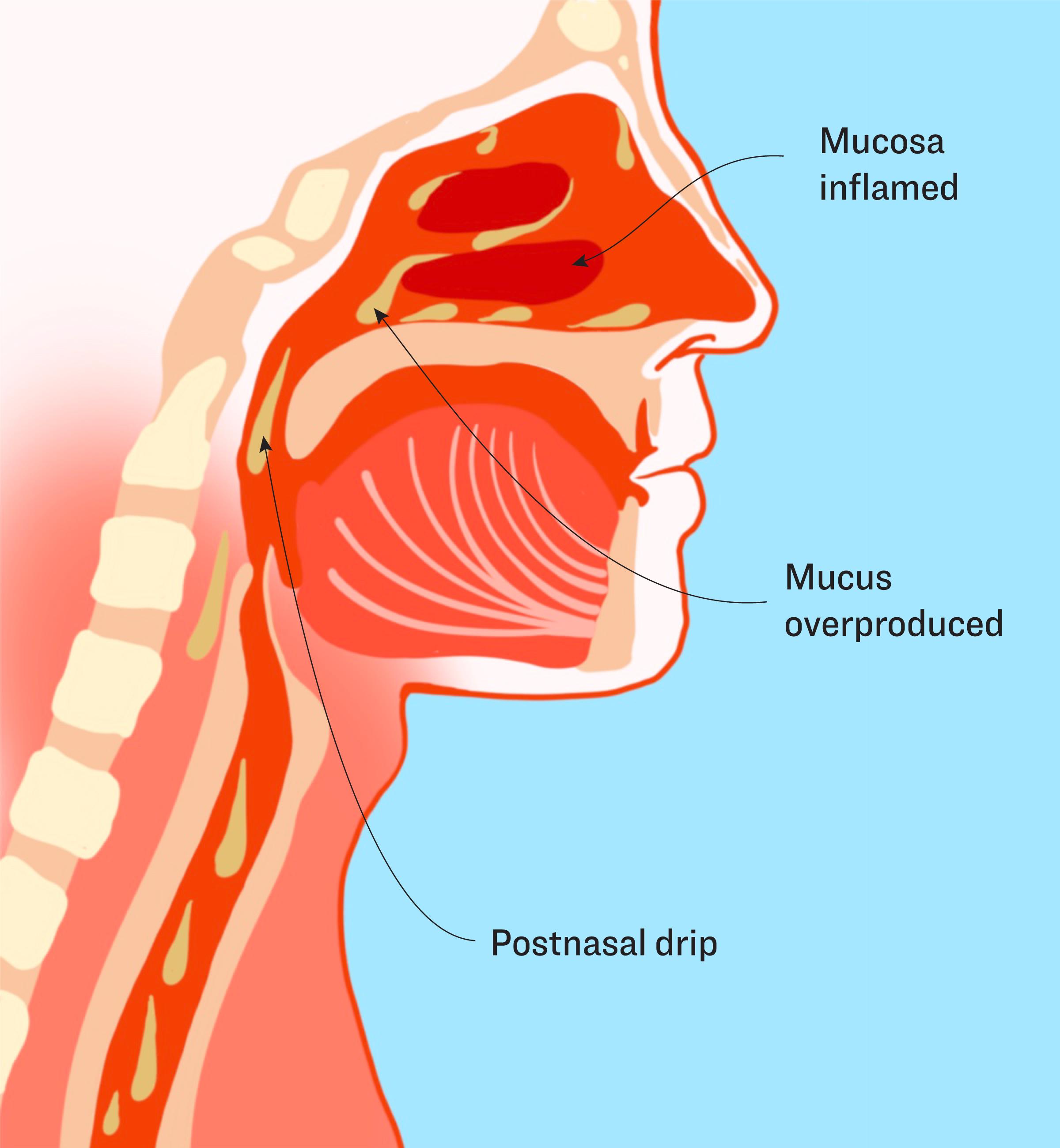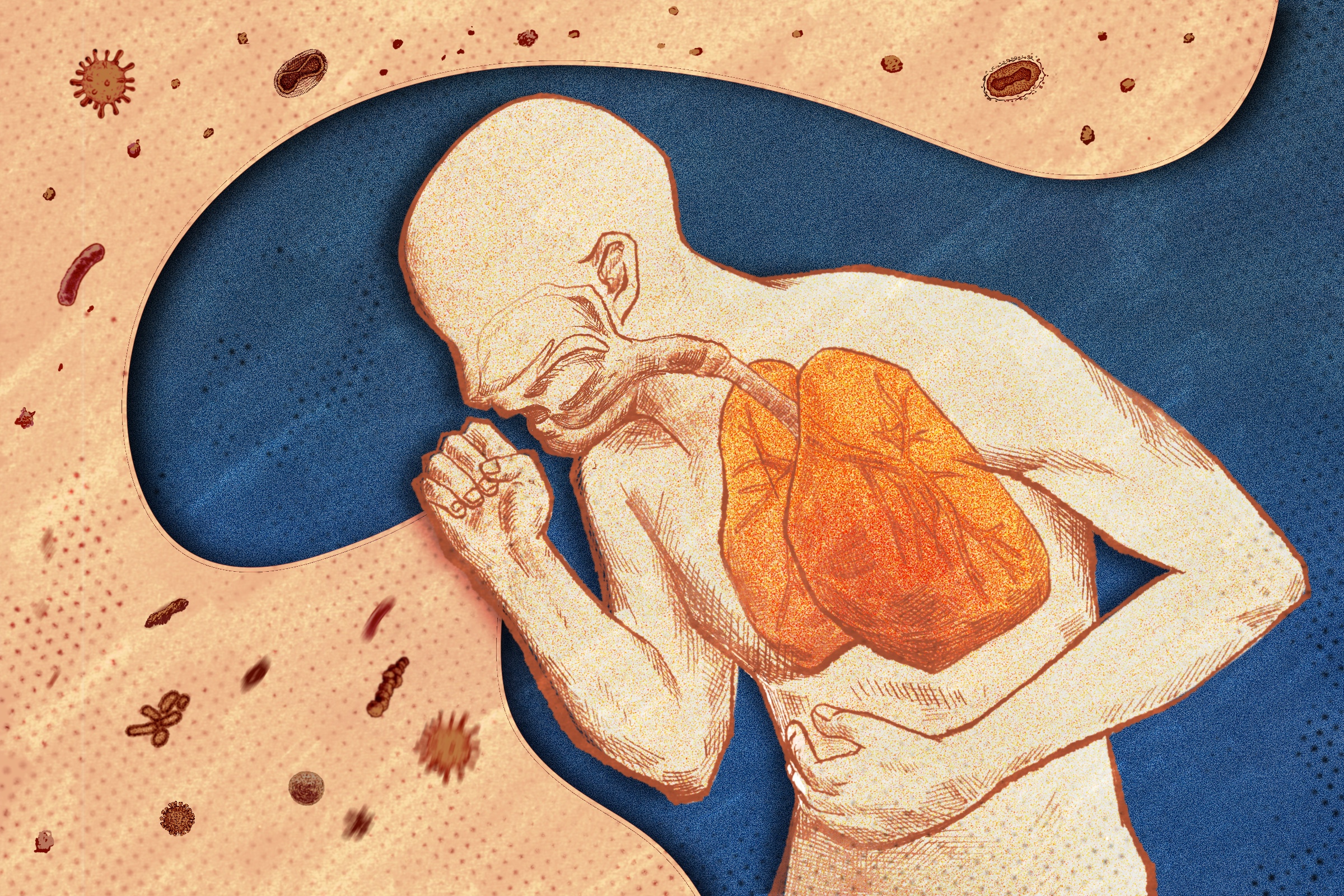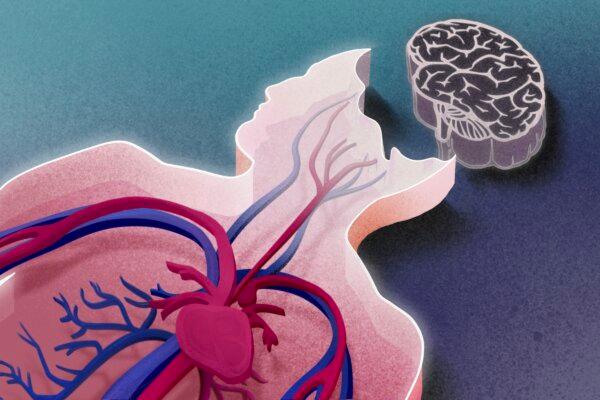Coughing Cleanses Your Body
“Cough very much is a natural and protective thing; it protects our lungs,” Dr. Kian Fan Chung, a professor at the National Heart & Lung Institute at the Imperial College London, told The Epoch Times.“It is a bit like a burglar alarm you have at home,” he said. “So if a burglar does go into your home, the alarm system goes up.”
The respiratory tract is abundant in nerve endings, some of which are known as cough receptors, located in the throat, vocal cords, and upper airway of the lungs. They react to foreign substances and stimuli; when activated, they trigger the cough reflex to expel mucus or foreign objects.

Acute Coughs Are Typically Self-Resolving
Coughs are classified as one of three types based on the duration of symptoms: acute cough (lasting less than three weeks), subacute cough (lasting three to eight weeks), and chronic cough (lasting more than eight weeks).“An acute cough is really extremely common,” Dr. Paul Marik, chairman and chief scientific officer of the Front Line COVID-19 Critical Care Alliance and former chief of the Division of Pulmonary and Critical Care Medicine at Eastern Virginia Medical School, told The Epoch Times. It happens mainly after an upper respiratory tract viral infection, including the common cold, flu, and COVID-19. The inflammation in the respiratory tract activates sensory receptors, thereby triggering coughing.
“In most patients who have acute cough, it’s the body’s natural response to infection and to get rid of the secretions,” he said, noting that such symptoms typically resolve within a certain period.
 Subacute coughs are also mainly caused by upper respiratory tract viral infections. This type of cough typically resolves on its own, with clinical data indicating that drug treatments often yield no significant benefits.
Subacute coughs are also mainly caused by upper respiratory tract viral infections. This type of cough typically resolves on its own, with clinical data indicating that drug treatments often yield no significant benefits.However, Dr. Marik highlighted that observing the characteristics of the secretions expelled during coughing is crucial. If these secretions are cloudy rather than clear, further examination is necessary to determine if there is a bacterial infection, such as bacterial bronchitis or bacterial sinusitis, both typically requiring antibiotic treatment.
Patients with pertussis also experience bouts of acute coughing. This is caused by a particular bacterium called Bordetella pertussis. Even adults who have received multiple doses of the pertussis vaccine can fall ill with the disease. The coughing sound in pertussis patients is distinctive, resembling a dog’s bark, which makes it easily recognizable. This is why it is also called whooping cough.
Dr. Marik emphasized the importance of taking measures for severe cases of acute and subacute coughing. Excessive coughing can potentially damage the throat and upper respiratory tract, leading to a vicious cycle of injury. Therefore, short-term oral corticosteroid medication may be necessary for more severe bouts of intermittent coughing.
He also mentioned a specific issue with acute COVID-19 infection: Patients infected with the virus often continue to cough even after recovering from discomfort and fatigue.
Dr. Chung said that generally, “when the virus disappears, the cough disappears.” However, coughing caused by COVID-19 may persist for a long time. Based on his observations, 60 percent to 70 percent of individuals infected with COVID-19 experience prolonged coughing.
Managing Acute Coughs
Many individuals often turn to cough suppressants when experiencing irritating coughs, but research has found that using such medications has minimal effect on coughs caused by viral infections.Dr. Marik emphasized the importance of vitamin D supplementation, as the vitamin is crucial for the immune system. Additionally, zinc supplements should be considered. Some anti-inflammatory supplements “might be helpful, but the data is limited.”
He also shared a method for relieving coughing: adding inhalants containing menthol to boiling water and inhaling the steam that rises from it. These inhalants are readily available at pharmacies.

Persistent Cough
Coughing for one to four weeks is typically attributed to infections or irritants such as chemicals or smoke. “If it [lasts] more than eight weeks, then these other conditions need to be looked into,” Dr. Albert Rizzo, chief medical officer of the American Lung Association and clinical assistant professor of medicine at the Sidney Kimmel Medical College of Thomas Jefferson University, told The Epoch Times.
Chronic cough is the body’s way of trying to “get something out of the lungs [that’s] not supposed to be there,” he said.
First, ensuring that the cough is not caused by lung cancer, chronic lung infections, or pulmonary fibrosis is crucial, as these conditions are much more dangerous than others. Doctors will conduct examinations using chest X-rays or computed tomography (CT) scans.



Cancer can induce a particular form of inflammation in the tissues, making the nerves more sensitive and thus more prone to coughing, according to Dr. Chung.
Upper Airway Cough Syndrome
Upper airway cough syndrome, previously known as postnasal drip syndrome, is the most common cause of chronic cough.
The nose serves as the gateway to the respiratory tract, responsible for heating, humidifying, and filtering air through appropriate mucus secretion. However, when signals from viruses, allergies, rhinitis, and air pollutants stimulate the nasal mucosa, it produces more mucus with properties different from usual secretion; this mucus is thin, watery, and runny. It flows out of the nostrils and often drips down the back of the throat, stimulating nerves and triggering coughing.
Cough-Variant Asthma
Wheezing and shortness of breath are typical asthma symptoms, but there is a type of asthma that presents only with coughing, referred to as cough-variant asthma.Acid Reflux
Stomach acid can irritate the esophageal nerves, triggering the cough reflex. The acid may also ascend to the throat, resulting in dry coughing.Certain Hypertension and Heart Disease Medications

Angiotensin-converting enzyme (ACE) inhibitors are widely used to treat high blood pressure and heart failure. However, these medications have a side effect: Up to 10 percent of users may experience persistent coughing. It often starts with a throat tickle, followed by a dry cough. These symptoms may appear as early as three weeks or as late as one year after starting the medication.
Fortunately, there are many medications with similar therapeutic effects. If side effects arise, doctors can simply adjust the medication accordingly.
Other common potential causes of chronic cough include chronic bronchitis.
Ways to Improve Refractory Chronic Cough
If a doctor treats the patient for all three of these possible underlying causes, and the cough has no improvement, “at that point, it’s a cough [that] meets the definition of refractory chronic cough,” Dr. Peter Dicpinigaitis, professor of medicine in the Division of Critical Care Medicine at the Albert Einstein College of Medicine, told The Epoch Times.Refractory chronic cough is caused by “a hypersensitivity of the cough reflex,” he said. In his experience, approximately 30 percent to 40 percent of patients with chronic cough belong in this category.
Individuals with unidentified causes tend to be older than age 40, with an average age of 55. They are predominantly female, outnumbering males by two-to-one, according to Dr. Chung.
These patients experience hypersensitivity in their nerves, akin to an overly sensitive security alarm system in a house triggered by the slightest breeze. Factors such as changes in temperature, the scent of perfume, or even laughter can set off this alarm.
Furthermore, the role of the brain is crucial. According to Dr. Chung, if there are issues with the brain’s control of cough signals, it is comparable to having an unreasonable circuit parameter setting behind the alarm system, leading to frequent false alarms.
A doctor’s strategy for managing these types of coughs is to suppress them as much as possible to reduce patient suffering, according to Dr. Dicpinigaitis.
“However, we do not have any particularly good baseline effective medications to treat this refractory chronic cough,” he said.
Fortunately, these patients often take proactive measures to identify triggers causing their coughs and engage in self-learning, adopting measures such as sucking on lozenges and staying hydrated.
Dr. Chung also emphasized the importance of keeping the throat moist, as dryness can stimulate cough receptors, making them more sensitive. It is always advisable to carry a small bottle of water. Additionally, stay in a warm environment and avoid cold stimuli.
Unfortunately, some people may never identify the cause of their cough, Dr. Rizzo said.














